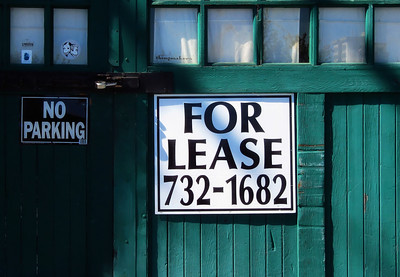If you believe the WCC Administration, Ann Arbor is a rich community. But what if it weren’t? There are a lot of factors that go into a community’s overall wealth, but things can and do change.
For a moment, set aside the absurdity of the comment. And in the context of Washtenaw County as a whole, it is absurd. There is no doubt that Ann Arbor’s wealth derives in large part from the University of Michigan. And it’s pretty clear that UM is not going anywhere.
But, as I said, things change. For example, COVID-19 has proven without doubt, that people can work from home. Students can learn from home. (They don’t like to, but they can make it happen.) Thanks to the Internet, people can do a lot of things from home that once required their presence in a particular place at a particular time.
If people can work and learn from home, that means they can live pretty much anywhere. Their employment does not tie them to any particular area. So, people no longer have to put up with high property or income taxes, or difficult weather, or high housing costs, or crappy roads. They can live anywhere and work just as effectively from Elsewhere as they can In Town. Maybe they can lower their car insurance costs, shorten their commutes, or even get rid of their cars altogether.
That puts a lot of (less expensive) places on par with Ann Arbor. Why live in the city when you don’t have to?
Post-COVID, what is the future of Ann Arbor?
This isn’t really a hypothetical event. It’s happening all over the place. City dwellers are moving to places that offer them the same or better quality of life at a lower cost. And if they can work remotely, why shouldn’t they? Why wouldn’t they?
In 2020, as the pandemic raged, people worked from home because they had to. We’re approaching the point (we think) where – strictly speaking – people will no longer have to work from home. A January 2021 survey revealed that 30% of working professionals would quit their jobs if they were forced to return to the office to work. Just 10% of companies say they expect all of their staff to return to work when the pandemic ends.
If you look at the commercial real estate market, there’s an awful lot of empty space. Much more than there was a year ago. Companies are trying to determine how much space they actually need post-COVID-19. They’re downsizing their office space, but not because they’re doing less work, or earning less money. They’re just taking up less space because some of their workers are going to continue working from home.
Empty offices may also mean empty homes
In the City of Ann Arbor in 2020, residential home sales dropped by 5.75% over 2019. In 2019, the average home in Ann Arbor sold for 92.2% of its asking price. In 2020, the average home in Ann Arbor sold for 91.5% of its asking price. It doesn’t mean that people are flooding toward the exits, but it raises the question: If you could work from home most of the time, would you choose to live in Ann Arbor?
That question has serious implications for WCC, which is heavily dependent upon property tax revenues. If Ann Arbor is a place to work, but not a place to live, what happens to its property values? Because what happens to property values happens to property taxes. And what happens to property taxes determines what happens to WCC.
Right now, fiscal responsibility at WCC is more important than ever. The institution needs to learn how to get along without 10 Vice Presidents. It needs to learn how to spend its money carefully because money may be harder to come by in the not-so-distant future.
Photo Credit: Scott Hingst





















